Table of Contents
Embarking on a culinary journey through Peru reveals a captivating tapestry of flavors and cultural heritage. The food from Peru, influenced by indigenous, Spanish, African, and Asian traditions, offers a delightful fusion of tastes. From beloved traditional dishes to tantalizing street cuisine, Peruvian food is a treasure trove of mouthwatering delights that showcase the richness of its food culture. Let’s dive into this diverse and vibrant world of the food culture of Peru.
Top Ingredients of the Food of Peru
In Peruvian cuisine, a rich and diverse array of flavors is created by skillfully combining various ingredients. Here is a list of the most commonly used ingredients that serve as the foundation of Peruvian culinary traditions:
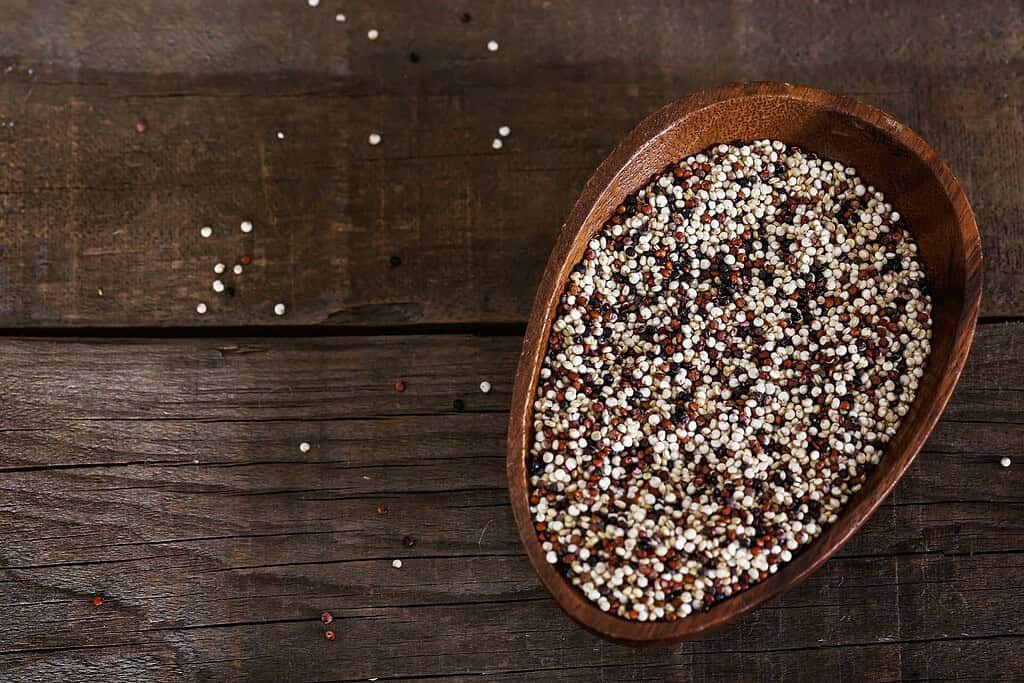
Quinoa: A staple in Peruvian cuisine, quinoa is often used in various dishes and can be prepared in different ways, such as in Quinoa Salad or as an accompaniment to main courses.
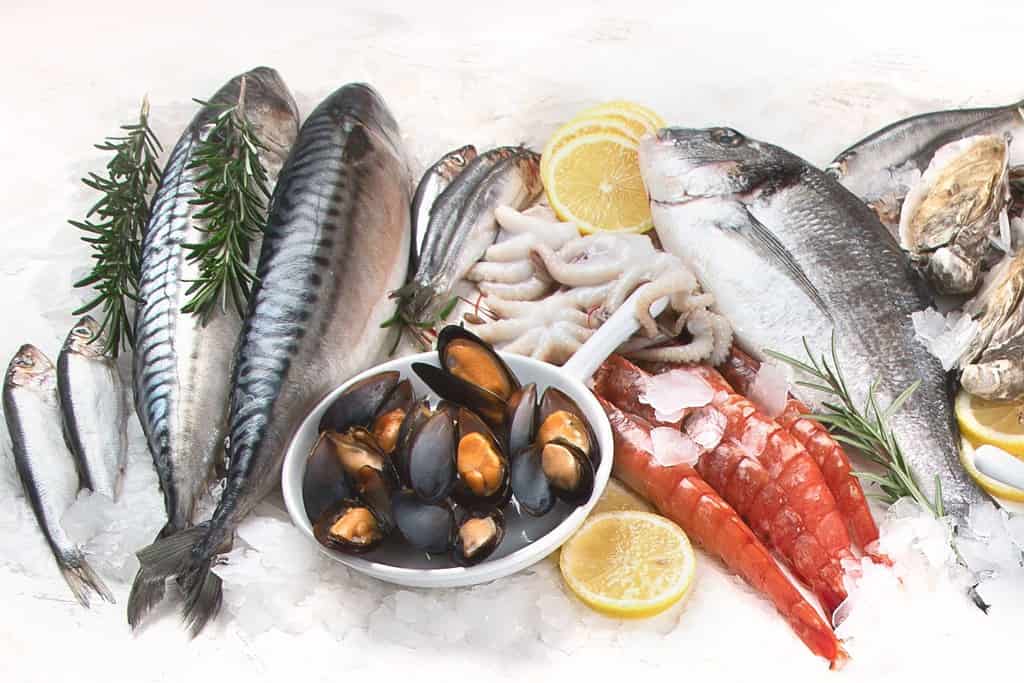
Seafood: Seafood, particularly fish and shellfish, plays a vital role in Peruvian gastronomy. Ceviche, tiradito, and seafood stews are just a few examples of popular dishes.
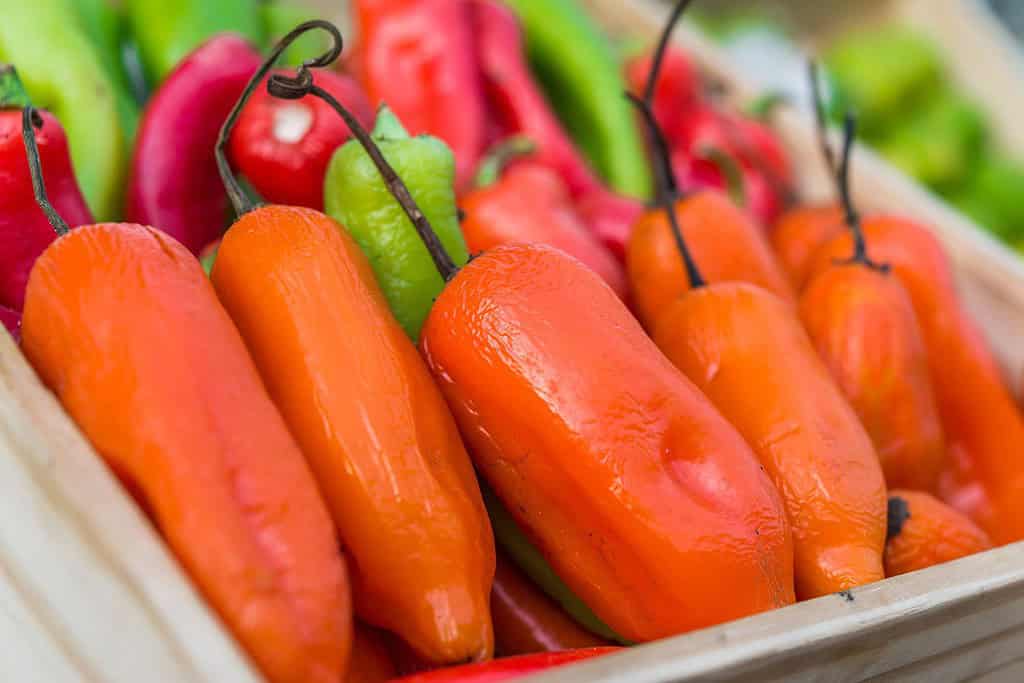
Aji Amarillo: This bright yellow chili pepper is a quintessential ingredient in Peruvian cuisine, adding a distinctive flavor and mild heat to many dishes, including sauces and marinades.
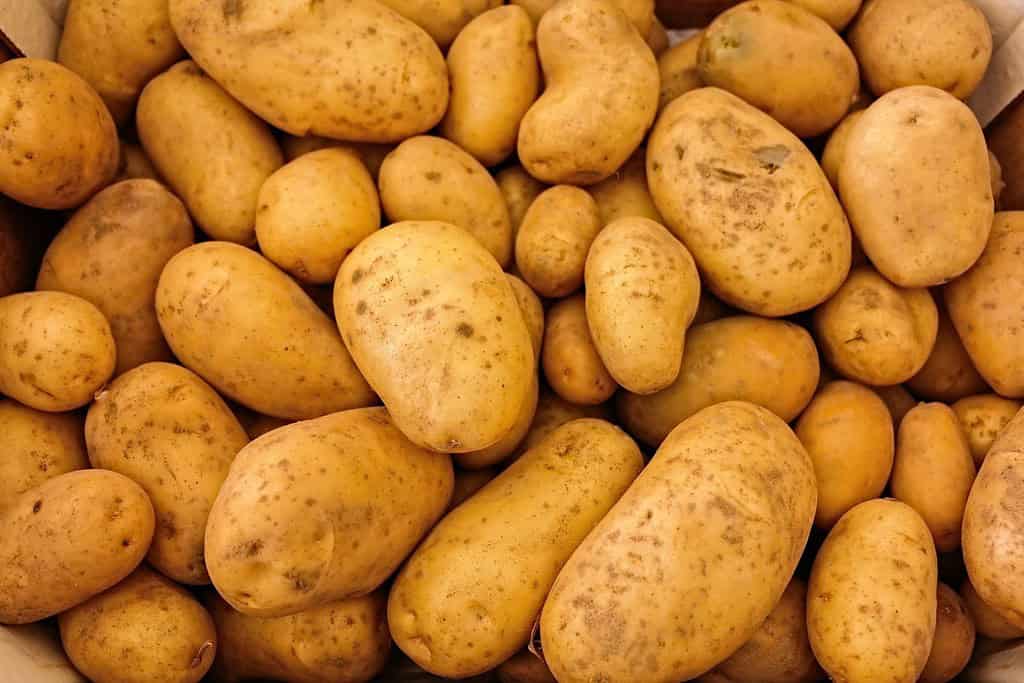
Potatoes: Peru is the birthplace of potatoes, and there is an incredible variety of potato types used in Peruvian cooking. They are featured in dishes like Papa a la Huancaina and Causa.
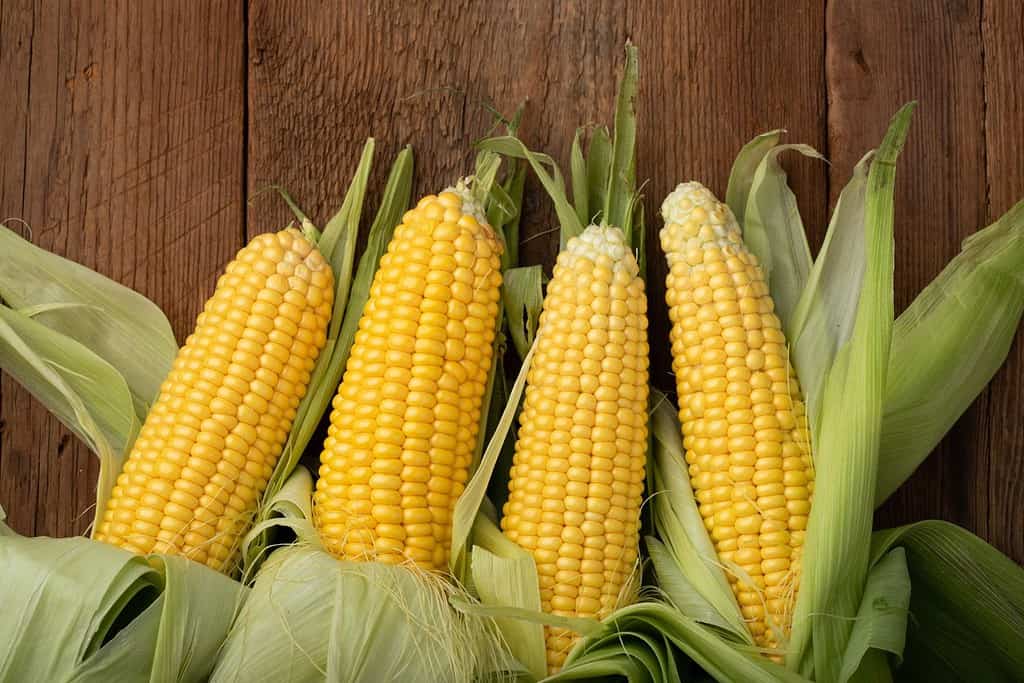
Corn: Corn is another essential ingredient, both in the form of fresh corn on the cob and corn products like cornmeal for dishes like tamales and humitas.
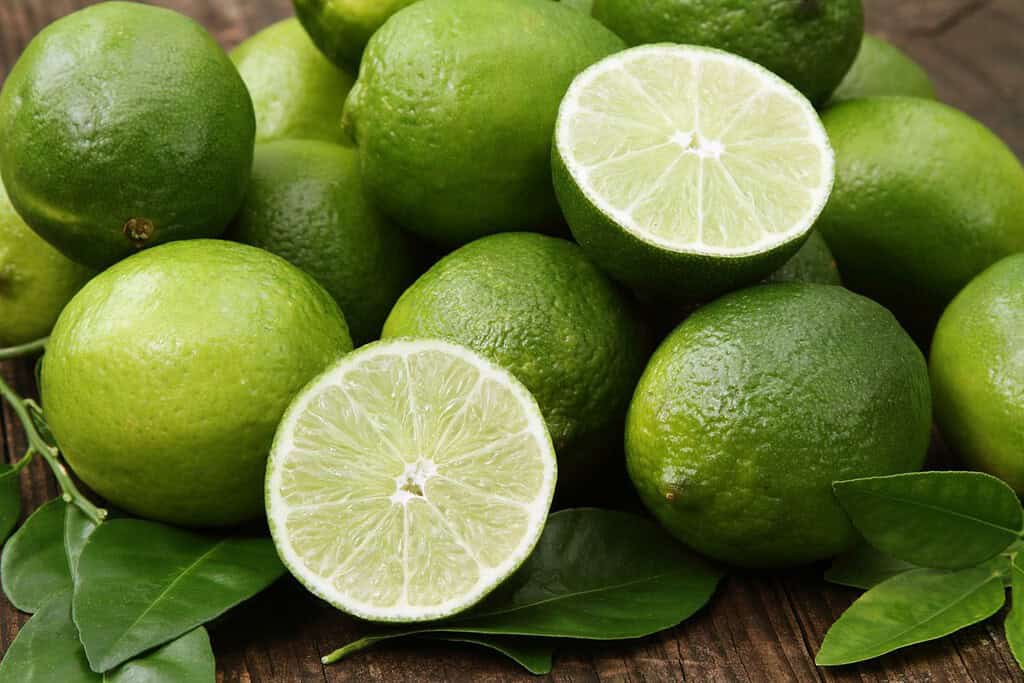
Lime: Lime juice is a crucial element in many Peruvian dishes, providing acidity and brightness, especially in ceviche.
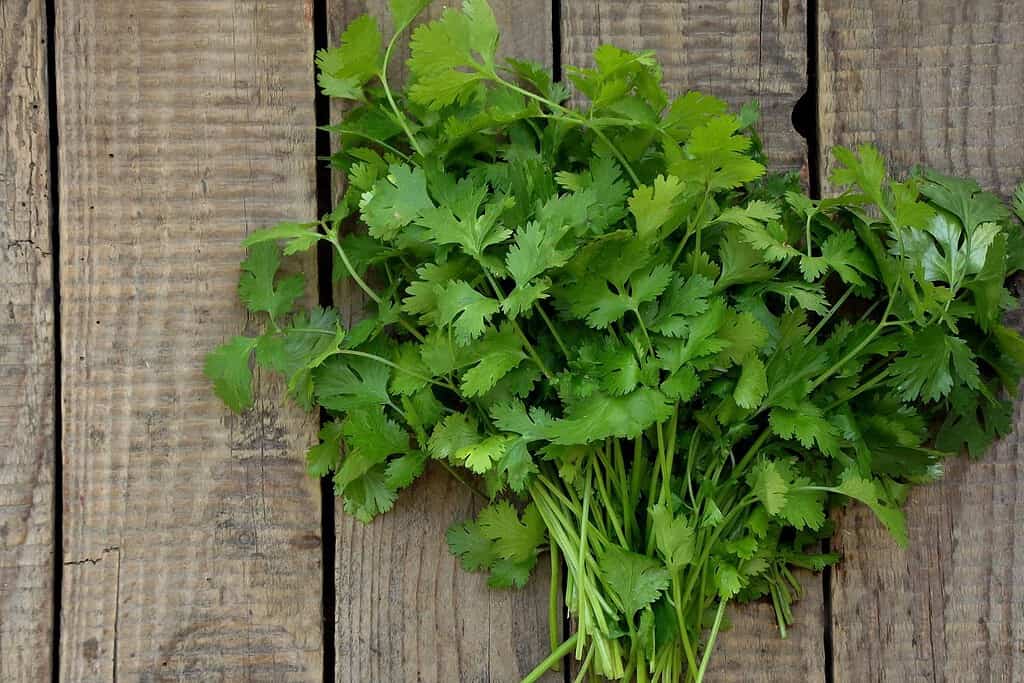
Cilantro: Fresh cilantro leaves are used generously in Peruvian cuisine, adding a vibrant, herbal flavor to sauces, marinades, and garnishes.
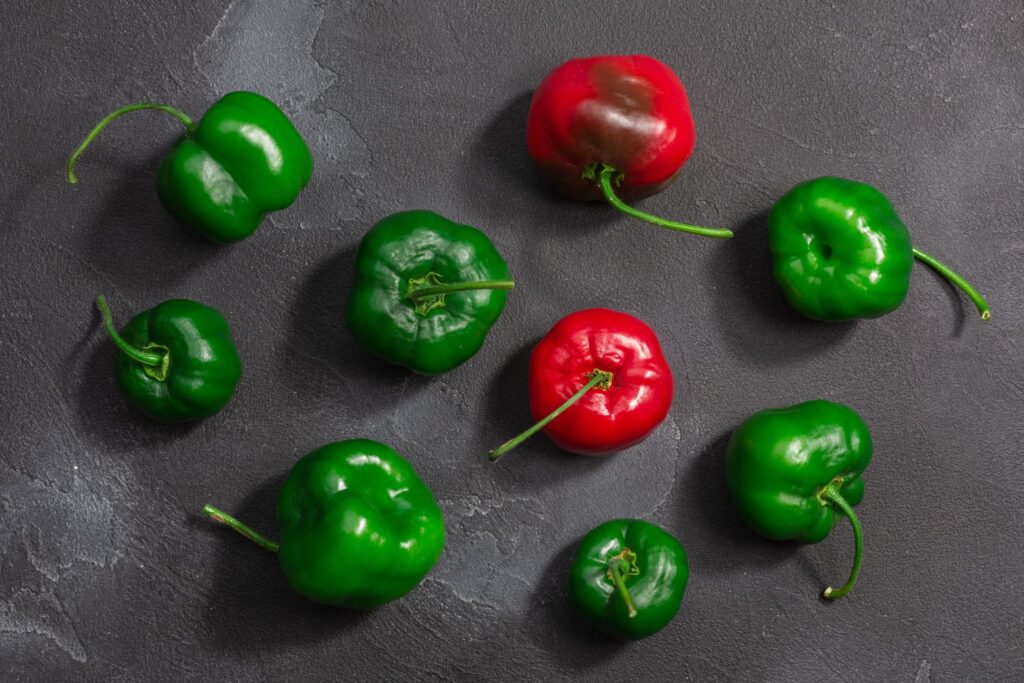
Rocoto Pepper: Rocoto is a spicy chili pepper used in Peruvian cuisine, contributing heat and flavor to various dishes, including rocoto relleno.
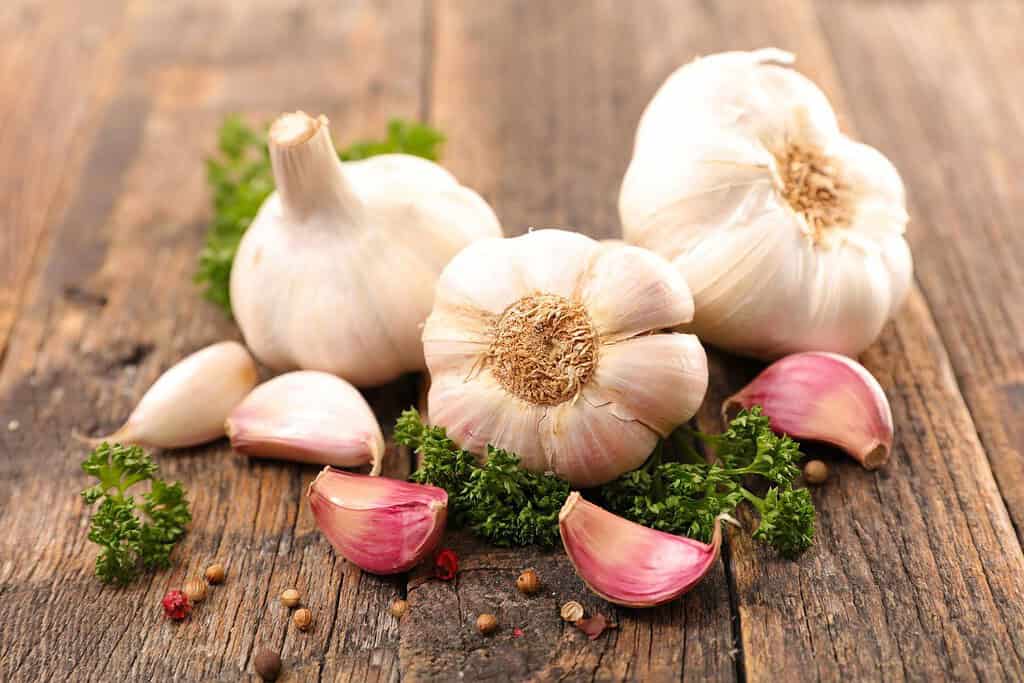
Garlic: Garlic is a fundamental ingredient in Peruvian cooking, enhancing the savory profile of many dishes.
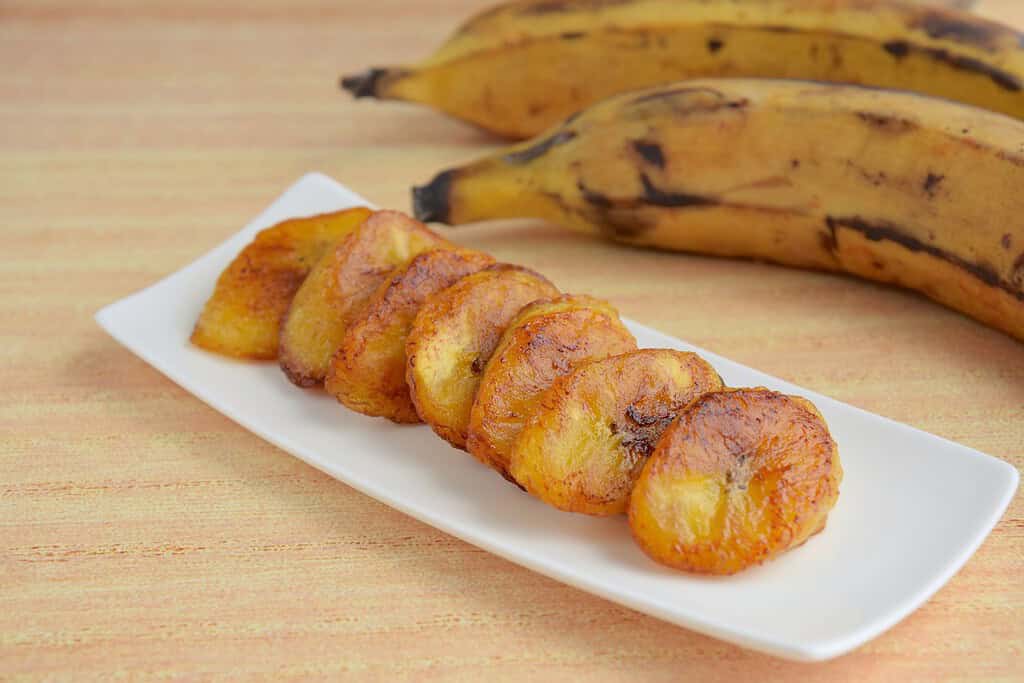
Plantains: Plantains are used in both sweet and savory Peruvian dishes, including tacu tacu and plantain fritters (turon de plátano).
These ingredients, along with a wide range of herbs, spices, and regional produce, come together to create the diverse and tantalizing flavors found in Peruvian cuisine.
The variety of food from Peruvian cuisine
Peruvian cuisine boasts a captivating variety of flavors and dishes that reflect the nation’s rich history and cultural diversity. Influenced by indigenous, Spanish, African, and Asian culinary traditions, Peruvian food offers a unique blend of ingredients and techniques. One of the most renowned dishes is Lomo Saltado, a flavorful stir-fry of marinated beef or chicken, sautéed with onions, tomatoes, and Peruvian spices, served with french fries and rice. This dish epitomizes Peruvian hospitality and is often enjoyed at family gatherings and celebrations. Another beloved Peruvian specialty is Ceviche, fresh fish or seafood marinated in lime juice and mixed with onions, cilantro, and aji peppers, creating a zesty and refreshing appetizer.
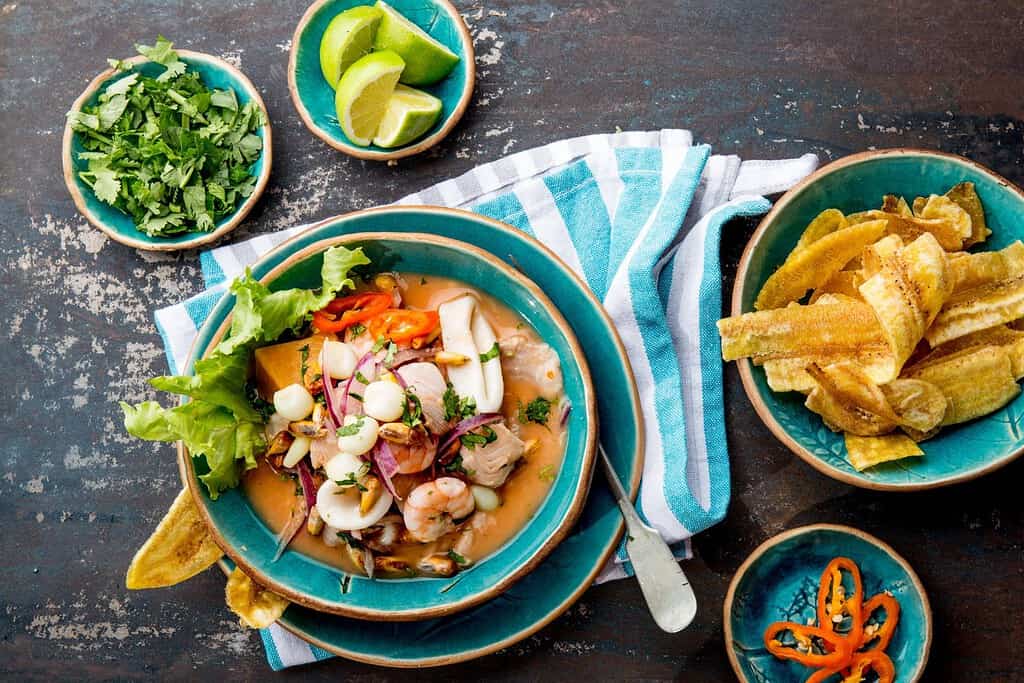
The heartiness of Peruvian cuisine is exemplified in its grilled Anticuchos, skewers of marinated beef heart or other meats, cooked over an open flame and served with potatoes and corn. The country’s love for stews is evident in Seco de Res, a savory beef stew simmered with cilantro, aji peppers, and beer, often accompanied by rice and beans. For a vegetarian option, Papa a la Huancaína stands out, featuring boiled potatoes topped with a creamy cheese and chili pepper sauce, garnished with hard-boiled eggs and olives. Another popular choice is Rocoto Relleno, a spicy pepper stuffed with seasoned ground beef or cheese, baked to perfection.
Satisfying the sweet tooth, Peruvian cuisine presents delightful desserts like Tres Leches Cake, a sponge cake soaked in three types of milk and topped with whipped cream and strawberries, commonly enjoyed during special occasions. The diversity of Peruvian food is further exhibited in its regional specialties, with each area showcasing distinct recipes and culinary techniques. Whether indulging in the savory flavors of Lomo Saltado or relishing the tangy taste of Ceviche, exploring the variety of Peruvian cuisine is an adventure in cultural richness and gastronomic pleasure.
While visiting beautiful Peru, you can try all of the best recipes from Peruvian cuisine. We have available a wide range of Tours in Peru that you can choose to visit the country.
Best Foods in Peru
Peru’s culinary scene offers a tantalizing array of dishes that delight the palate with their diverse flavors and cultural importance. While it’s challenging to compile a definitive list of the “best” foods, some dishes shine as particularly cherished and iconic in Peruvian cuisine.
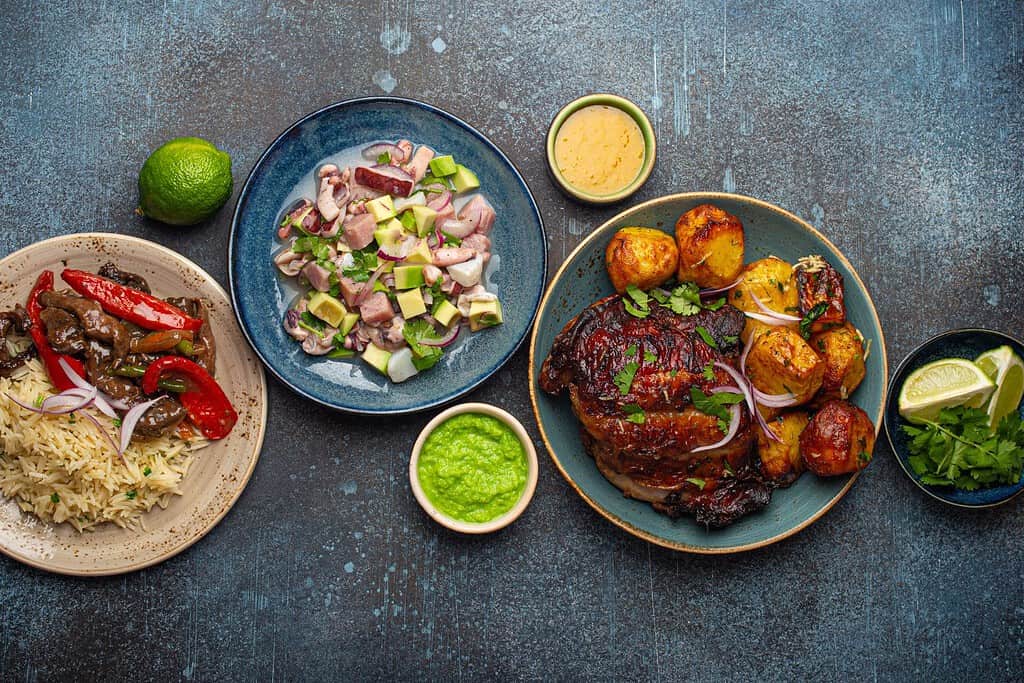
Peruvian cuisine is renowned for its skillful use of spices and ingredients, including aji peppers, cilantro, cumin, garlic, oregano, paprika, turmeric, huacatay (black mint), and annatto, which contribute to its bold and flavorful dishes. The outcome is a harmonious fusion of fragrant spices and fresh herbs that truly distinguish Peruvian cuisine.
Most famous Peruvian foods
Here are the top most famous foods in Peru that have garnered recognition both locally and internationally:
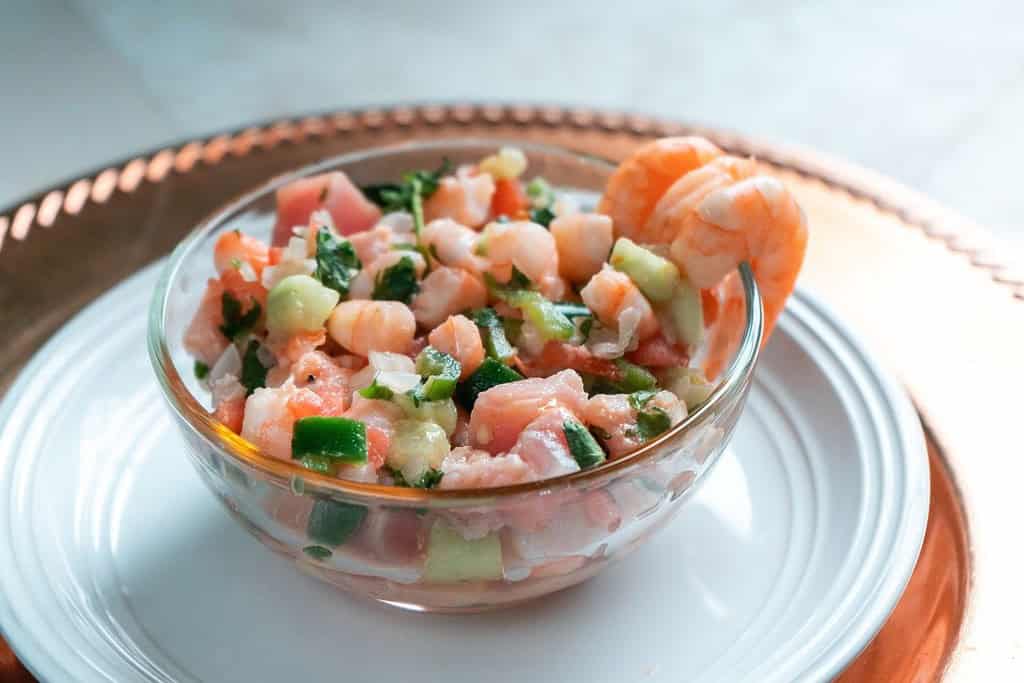
Ceviche: Considered a national treasure, Peruvian ceviche features fresh fish or seafood marinated in lime juice and mixed with onions, cilantro, and aji peppers. Served cold, this refreshing dish is a beloved staple of Peruvian cuisine.
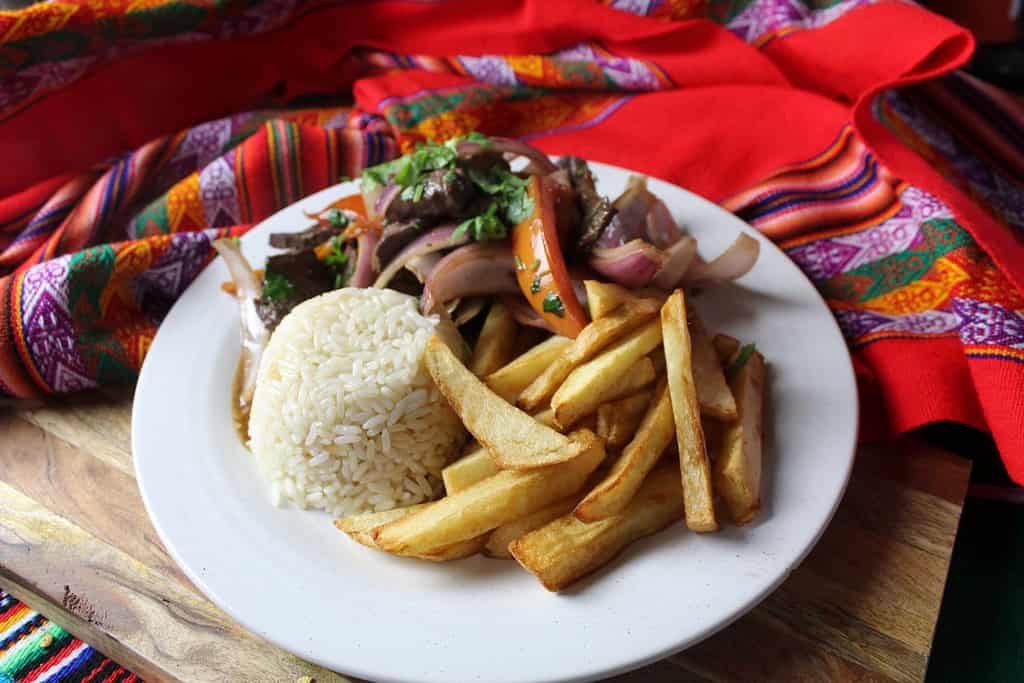
Lomo Saltado: A fusion of Chinese and Peruvian flavors, Lomo Saltado is a stir-fry dish that combines tender strips of beef or chicken with onions, tomatoes, and French fries. Seasoned with soy sauce and spices, it’s served with rice and embodies the cultural diversity of Peru.

Anticuchos: These skewered and grilled marinated meat pieces, often made with beef heart, are a popular street food in Peru. Served with potatoes and a spicy peanut sauce called huancaina, anticuchos are a flavorful and satisfying snack.
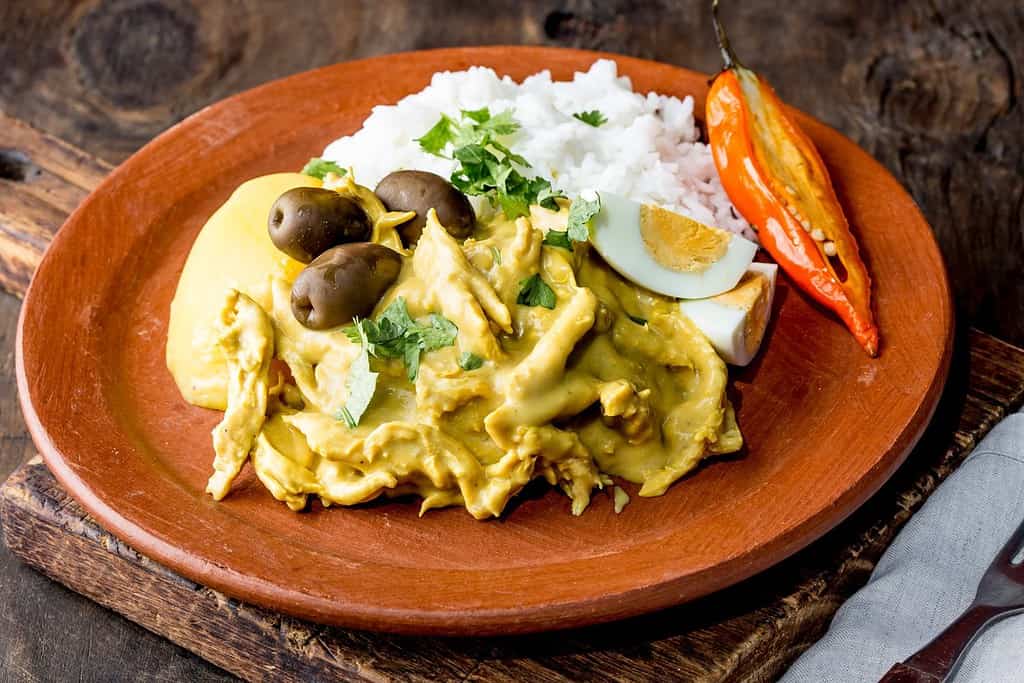
Aji de Gallina: A creamy and mildly spicy chicken stew, Aji de Gallina is made with aji amarillo (yellow chili pepper), shredded chicken, bread, and evaporated milk. It’s typically served over rice and garnished with hard-boiled eggs and black olives.
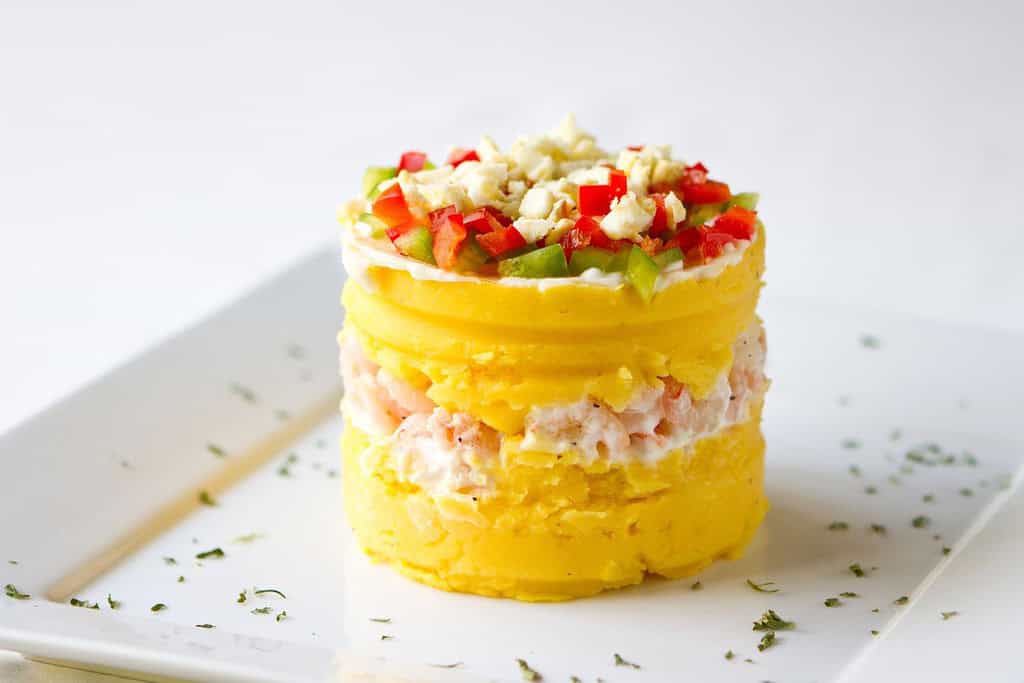
Causa: Causa is a colorful layered dish made with mashed potatoes seasoned with lime and aji amarillo. It’s filled with various ingredients like chicken, tuna, or avocado, creating a delightful combination of textures and flavors.
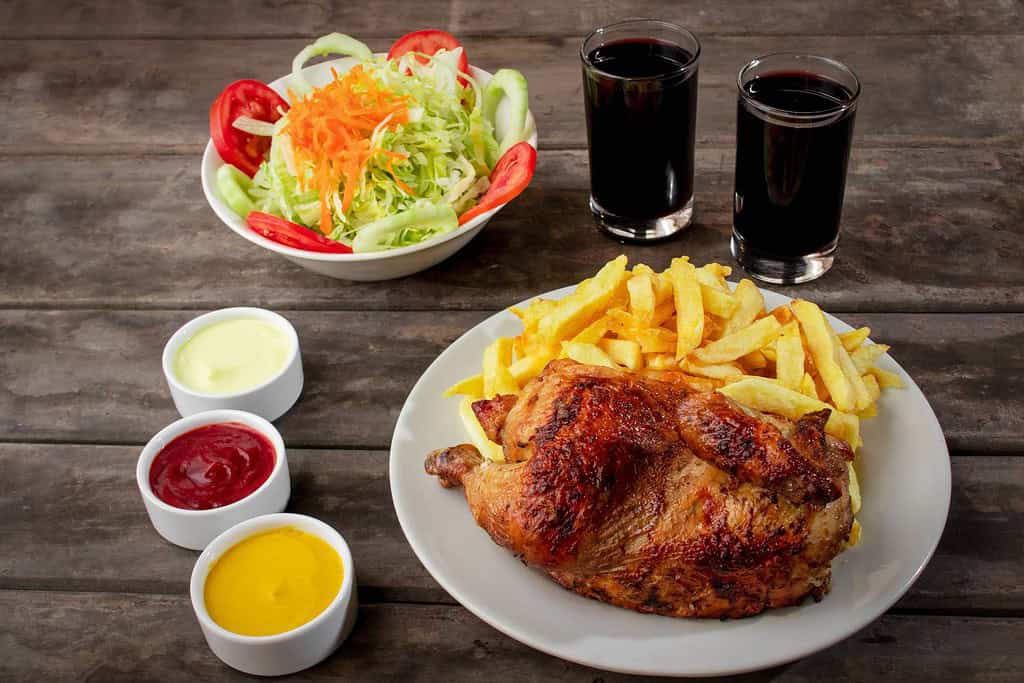
Pollo a la Brasa: This roasted chicken dish is marinated in a blend of spices and herbs, including cumin and paprika, and then roasted to perfection. It’s commonly served with french fries and a creamy green sauce.
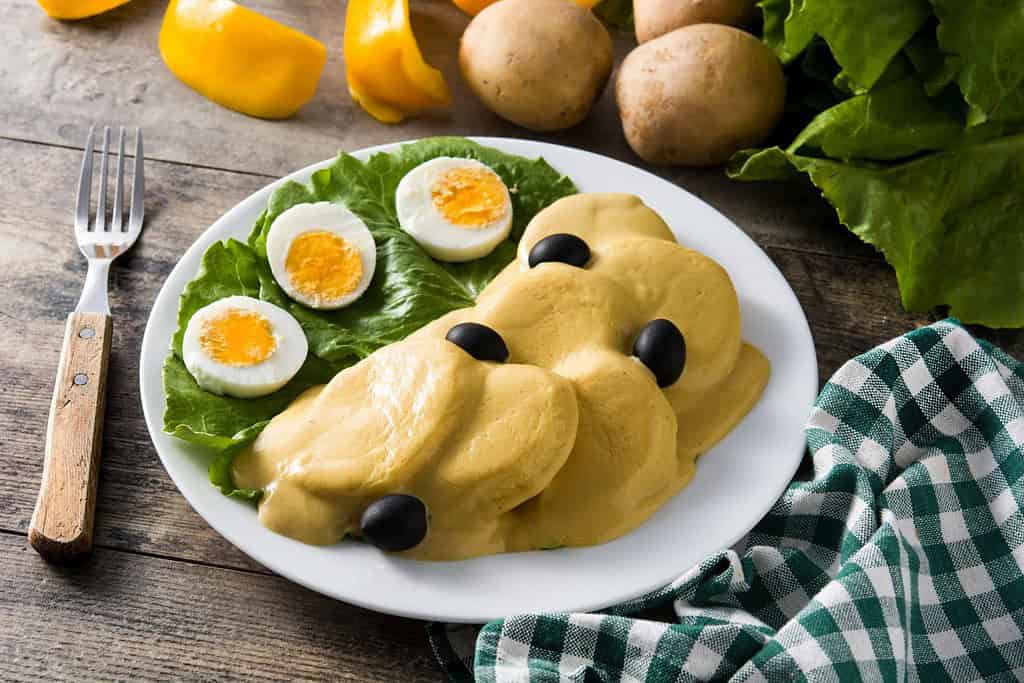
Papa a la Huancaina: Sliced boiled potatoes are smothered in a creamy, spicy cheese sauce made with aji amarillo, queso fresco, and evaporated milk. Often served with boiled eggs and olives, Papa a la Huancaina is a comforting and hearty Peruvian appetizer.
These renowned Peruvian dishes showcase the richness and diversity of the country’s culinary heritage, making them popular not only within Peru but also among food enthusiasts around the world.
Peruvian Desserts
Peruvian desserts offer a delightful conclusion to a satisfying meal, showcasing a blend of sweet flavors and delicate textures. These desserts are deeply rooted in Peruvian culture and are often enjoyed during celebrations, festivals, and special occasions. Some popular Peruvian desserts include:

Tres Leches Cake: This is one of Peru’s most cherished desserts, especially during birthday celebrations. Tres Leches Cake is a moist sponge cake soaked in a mixture of three types of milk: evaporated milk, condensed milk, and whole milk. The combination of these milks makes it an indulgent and creamy treat.
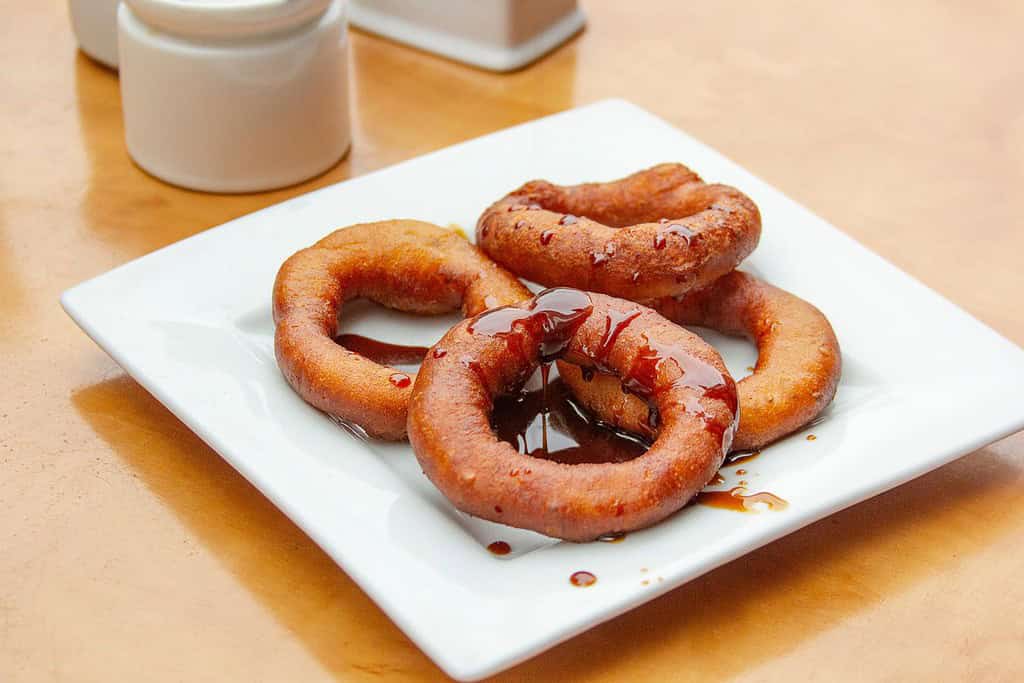
Picarones: A beloved street food, Picarones consist of deep-fried doughnut-like rings made from a sweet potato and pumpkin batter. They are served with a flavorful syrup made from molasses and spices, resulting in a sweet and sticky delicacy. They are a popular choice during local fairs and other festive occasions.
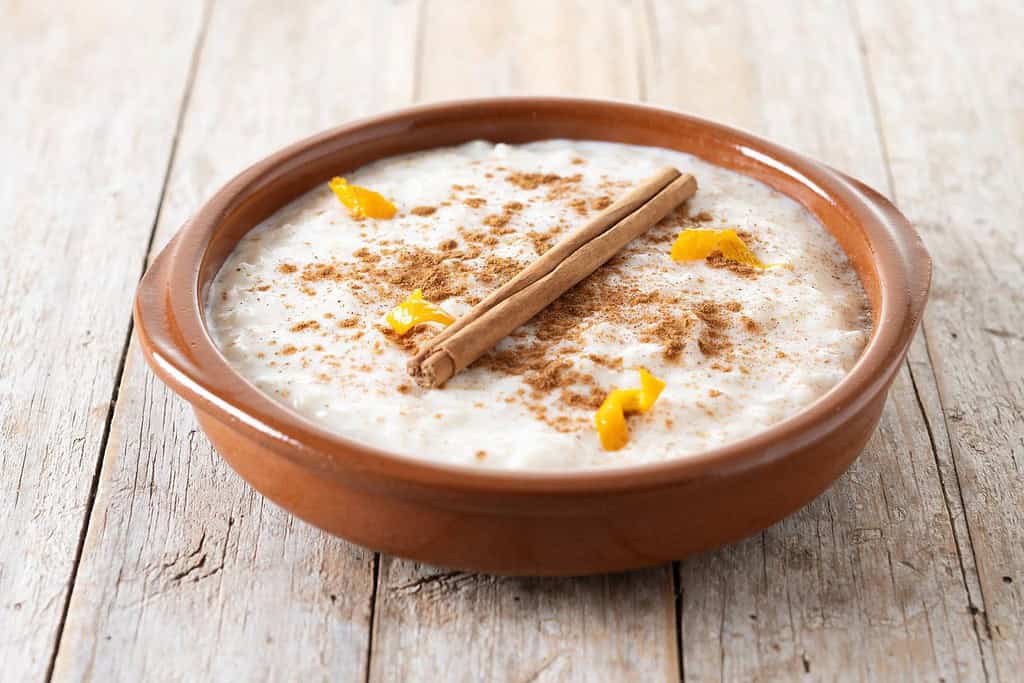
Arroz con Leche: Similar to rice pudding, Arroz con Leche is a creamy dessert made with rice, milk, sugar, and fragrant cinnamon. It is often garnished with raisins and a sprinkle of ground cinnamon, adding a lovely fruity and spicy touch.
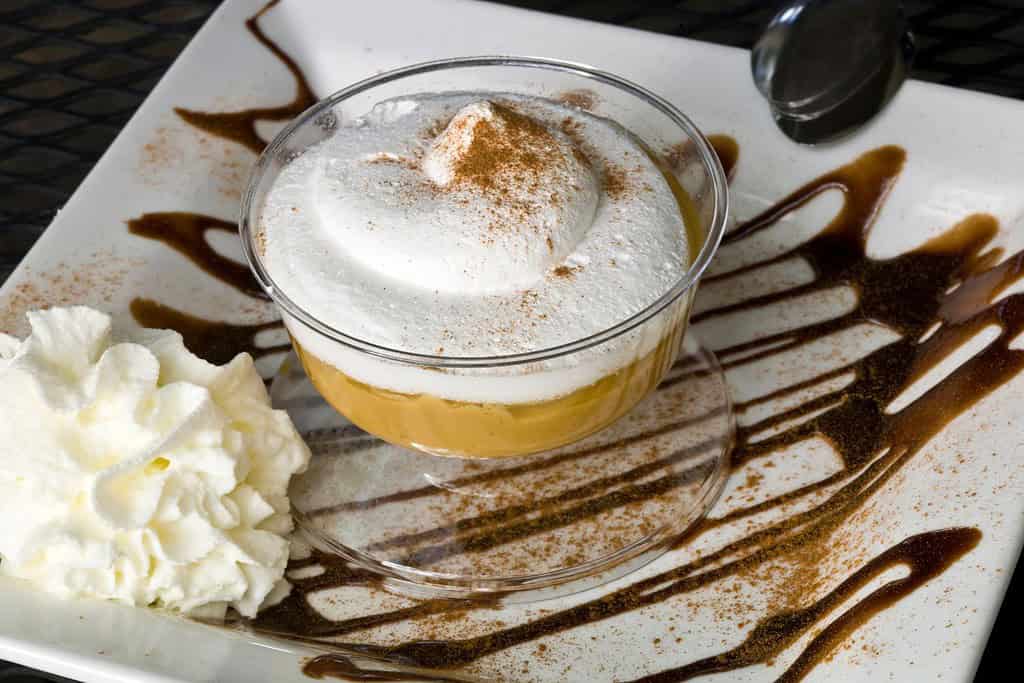
Suspiro a la Limeña: Although Suspiro a la Limeña has its origins in Lima, it has become a favorite in Peruvian cuisine. It consists of a rich caramel-like custard topped with a layer of Italian meringue, creating a sweet and velvety treat with a hint of citrus flavor.
The culture behind Peruvian food
The culture behind Peruvian food is deeply rooted in tradition, diversity, and community. Peruvian cuisine reflects the country’s rich history and the fusion of indigenous, Spanish, African, and Asian culinary influences. Food holds significant cultural importance in Peru and plays a central role in social gatherings, family events, and religious celebrations.
Hospitality is a cornerstone of Peruvian culture, and sharing food with guests is a deeply ingrained tradition. When visitors arrive at a Peruvian home, they are warmly welcomed with an array of delicious dishes, reflecting the host’s generosity and desire to make their guests feel at home. Meals are often communal affairs, with everyone seated around a shared table, emphasizing the importance of togetherness and solidarity in Peruvian culture.
Also, read:
Lima, Cusco, and Arequipa
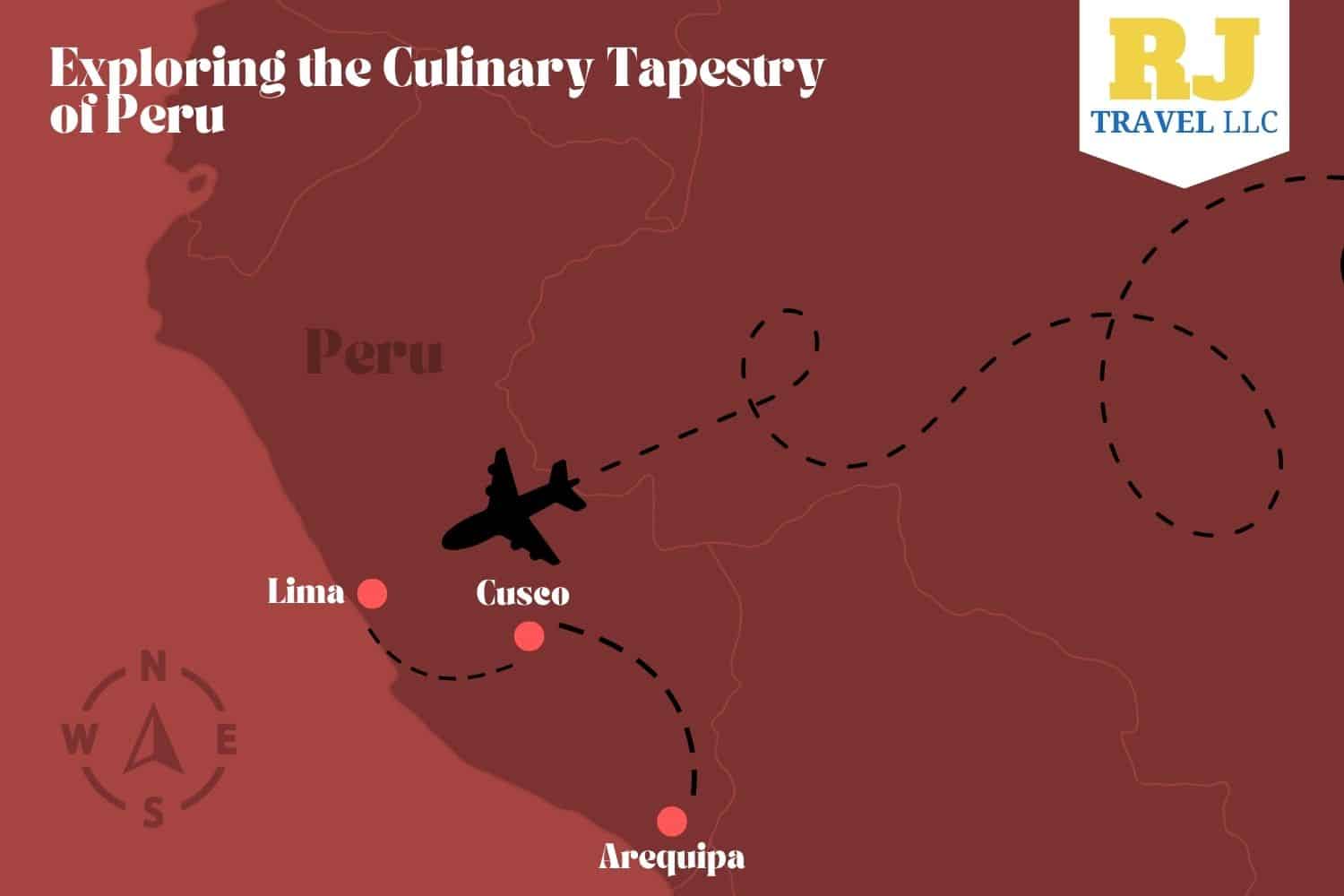
Embark on a gastronomic journey through Lima, Cusco, and Arequipa, and dive into the mesmerizing flavors that have been cherished for generations in Peru. Allow the traditional dishes of each city to paint a vivid picture of Peru’s culinary heritage, inviting you to savor the unique delights of these remarkable regions.
Within the enchanting world of Peruvian cuisine, each region brings its own distinctive flavors and culinary traditions. Let’s explore Lima, Cusco, and Arequipa, and uncover the delightful variations in their traditional foods.
The differences in dishes from each Peruvian city can be attributed to a combination of factors, including geography, historical influences, and the predominant ethnic groups residing in each region. Peru’s diverse geography, with its coastal areas, highlands, and rainforests, has influenced the availability of ingredients and agricultural practices in different regions. This, in turn, has led to variations in the types of dishes that have developed in each city.
Lima’s Ceviche showcases fresh seafood marinated in zesty citrus juices and spices, representing the coastal influence on Peruvian cuisine. Cusco’s Lomo Saltado takes a unique approach to stir-fry, combining beef, vegetables, and aromatic spices for a tantalizing taste experience. Arequipa’s Rocoto Relleno offers a spicy twist with stuffed chili peppers, highlighting the region’s bold flavors.
For example, in Lima, as the capital and a melting pot of cultures, the culinary scene is diverse and influenced by a blend of traditions from various regions. Cusco, with its historical significance and Andean location, incorporates local ingredients and techniques, resulting in distinctive dishes like Lomo Saltado. In Arequipa, the influence of the surrounding Andes Mountains and indigenous traditions creates a cuisine known for its spicy and flavorful dishes like Rocoto Relleno.
Comparing the three cities, Lima offers a wide range of dishes influenced by its cosmopolitan character, Cusco celebrates the use of highland ingredients in its cuisine, and Arequipa delights with its bold and spicy flavor combinations. Each city proudly showcases its own culinary identity, adding richness to the diverse tapestry of Peruvian cuisine.
Lima
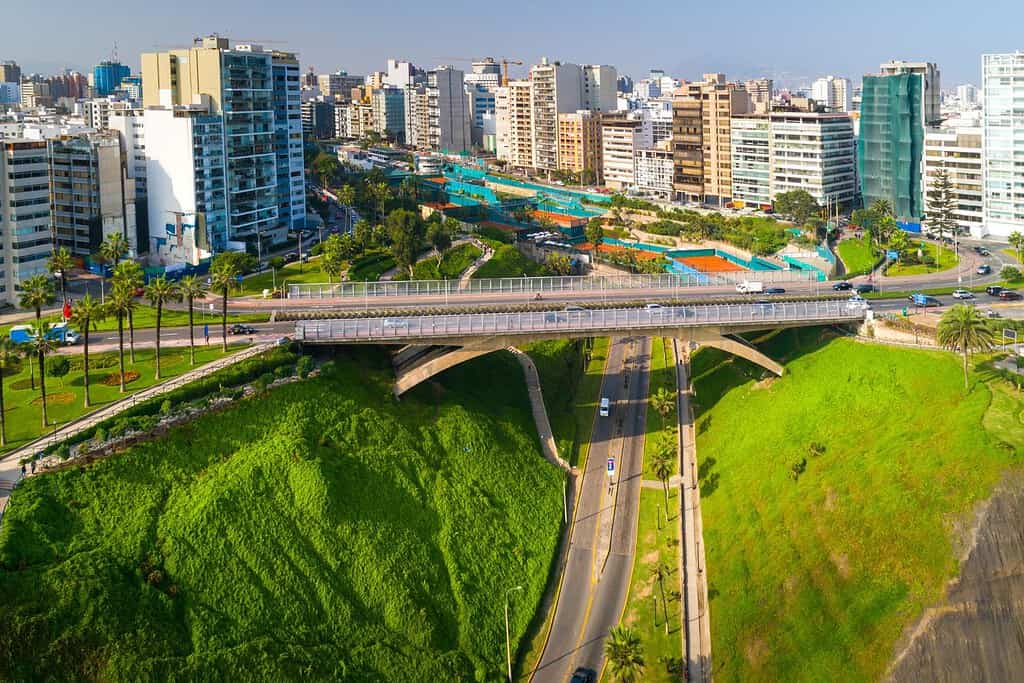
Commencing our culinary journey in Lima, the capital city of Peru, we are welcomed by a vibrant food scene that mirrors the country’s rich cultural heritage. The city boasts a blend of traditional Peruvian dishes and international influences. As we explore the bustling markets and street food vendors, the air is filled with the enticing aromas of freshly cooked ceviche and anticuchos. Lima’s food culture is a tapestry of flavors, offering a wide range of dishes to satisfy every palate.
Famous food from Lima
- Ceviche: Fresh seafood, typically fish or shrimp, marinated in citrus juices and served with onions, cilantro, and aji pepper.
- Lomo Saltado: A savory stir-fry of beef, tomatoes, onions, and french fries, often accompanied by rice.
- Aji de Gallina: A creamy chicken dish with a mildly spicy yellow pepper sauce, served with boiled potatoes and rice.
- Anticuchos: Grilled skewers of marinated beef heart or other meats, commonly served with potato and corn.
- Papa a la Huancaina: Sliced boiled potatoes topped with a creamy cheese and yellow pepper sauce, garnished with hard-boiled eggs and olives.
- Tacu Tacu: A dish made from leftover rice and beans, mixed and fried to create a crispy patty, often served with a variety of toppings.
- Suspiro a la Limeña: A sweet dessert consisting of a rich caramel-like custard topped with a meringue-like foam.
Cusco

Continuing our journey to Cusco, a city known for its ancient Incan heritage, we find ourselves immersed in the flavors of traditional Peruvian cuisine with a focus on indigenous ingredients and cooking techniques. Cusqueñan cuisine celebrates the use of local produce, herbs, and spices, offering a unique gastronomic experience.
Famous food from Cusco
- Rocoto Relleno: A spicy dish made from stuffed rocoto peppers, typically filled with ground meat, cheese, and vegetables, baked to perfection.
- Pachamanca: A traditional Incan cooking method involving the underground oven baking of marinated meats, potatoes, and vegetables.
- Cuy al Horno: Guinea pig roasted with herbs and spices, a delicacy in the region.
- Chairo: A hearty soup featuring a variety of Andean ingredients, including vegetables, potatoes, and meat.
- Humitas: Steamed corn cakes filled with a mixture of corn, cheese, and spices, wrapped in corn husks.
- Chuño: Freeze-dried potatoes that are rehydrated and used in various Andean dishes.
- Queso Helado: A frozen dessert similar to ice cream, made with milk, cinnamon, and coconut.
Arequipa
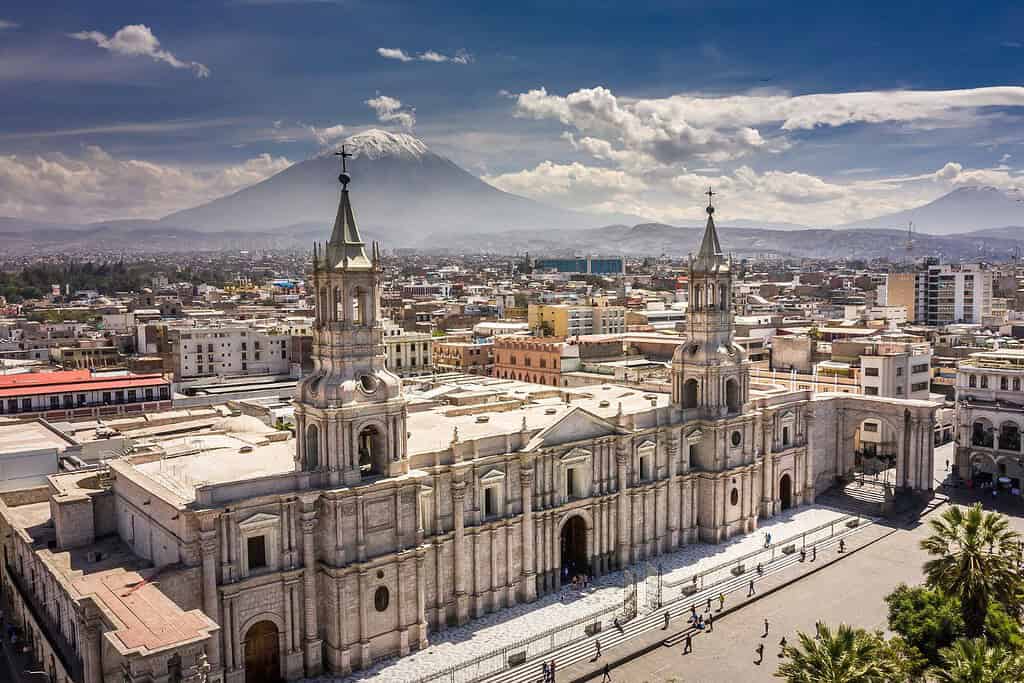
Our culinary journey concludes in Arequipa, a city known for its volcanic landscapes and distinct cuisine. Arequipeñan cuisine is characterized by its spicy flavors and unique dishes that showcase the region’s culinary traditions.
Famous food from Arequipa
- Rocoto Relleno Arequipeño: A spicy stuffed rocoto pepper dish with a distinct local twist, often filled with a mixture of beef and pork.
- Adobo Arequipeño: A flavorful marinated pork stew made with rocoto pepper, garlic, and spices.
- Solterito de Queso: A fresh salad featuring cheese, broad beans, corn, onions, and rocoto pepper, dressed with a vinaigrette.
- Chupe de Camarones: A hearty shrimp soup with potatoes, corn, and cheese, seasoned with local spices.
- Ocopa: Boiled potatoes served with a creamy sauce made from cheese, peanuts, huacatay (a local herb), and aji peppers.
- Queso Mantecoso de Arequipa: A creamy and slightly salty cheese, often enjoyed with bread or crackers.
- Helado de Quinua: A unique ice cream made from quinoa, offering a blend of sweet and nutty flavors.
Book Your Trip to Peru Today!
Embark on an unforgettable journey and explore the allure of Peru through our exclusive tours.
More About Peru
[the-post-grid id=”50410″ title=”Peru Main page”]
